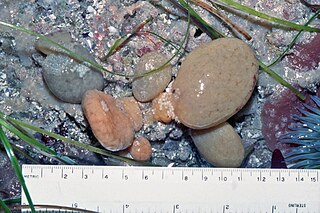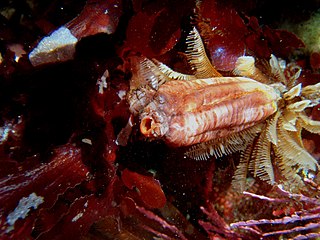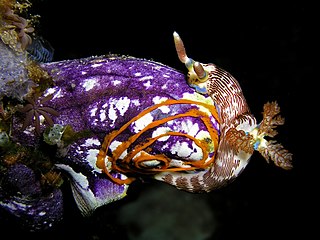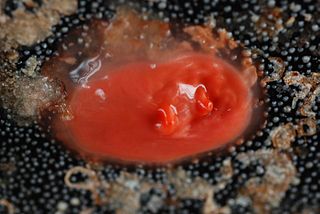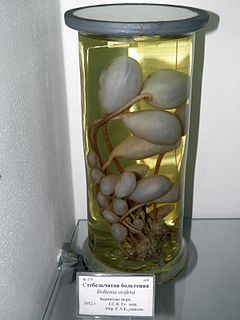| Polyclinum | |
|---|---|
 | |
| Polyclinum aurantium | |
| Scientific classification | |
| Kingdom: | Animalia |
| Phylum: | Chordata |
| Subphylum: | Tunicata |
| Class: | Ascidiacea |
| Order: | Enterogona |
| Suborder: | Aplousobranchia |
| Family: | Polyclinidae |
| Genus: | Polyclinum Savigny, 1816 [1] |
| Species | |
Polyclinum is a genus of colonial sea squirts, tunicates in the family Polyclinidae.
A genus is a taxonomic rank used in the biological classification of living and fossil organisms, as well as viruses, in biology. In the hierarchy of biological classification, genus comes above species and below family. In binomial nomenclature, the genus name forms the first part of the binomial species name for each species within the genus.
In biology, a colony is composed of two or more conspecific individuals living in close association with, or connected to, one another. This association is usually for mutual benefit such as stronger defense or the ability to attack bigger prey. It is a cluster of identical cells (clones) on the surface of a solid medium, usually derived from a single parent cell, as in bacterial colony. In contrast, a solitary organism is one in which all individuals live independently and have all of the functions needed to survive and reproduce.

A tunicate is a marine invertebrate animal, a member of the subphylum Tunicata. It is part of the Chordata, a phylum which includes all animals with dorsal nerve cords and notochords. The subphylum was at one time called Urochordata, and the term urochordates is still sometimes used for these animals. They are the only chordates that have lost their myomeric segmentation, with the possible exception of the seriation of the gill slits.

